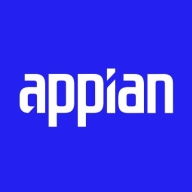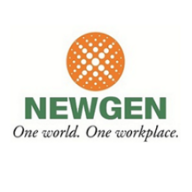

Appian and Newgen OmniFlow are competitors in the enterprise platforms category, focusing on process automation and management solutions. Appian is favored for its deployment speed and intuitive interface, while Newgen OmniFlow is recognized for its extensive feature set and customization flexibility.
Features: Appian offers rapid development with low-code capabilities, robust process design, and strong integration options. Newgen OmniFlow provides advanced document management, flexible workflow customization, and comprehensive process automation, facilitating complex business processes effortlessly.
Room for Improvement: Appian could enhance its in-depth functionality and customization opportunities. Additionally, expanding its advanced document management features and providing more flexibility in workflow design will be beneficial. Newgen OmniFlow could improve its deployment speed, simplify initial configuration, and further refine its user interface to align with non-technical users' needs.
Ease of Deployment and Customer Service: Appian simplifies the deployment process with a fast, seamless transition, supported by a reliable support framework. Newgen OmniFlow requires more initial setup but ensures robust post-deployment support, which includes comprehensive implementation assistance, focusing on thorough customer support.
Pricing and ROI: Appian offers a more cost-effective solution up front with efficient scaling options, optimizing ROI through reduced implementation time. Newgen OmniFlow, while possibly requiring a larger initial investment, delivers significant value by offering extensive features and high customizability, proving cost-efficient for intricate, customization-heavy projects.
| Product | Market Share (%) |
|---|---|
| Appian | 4.2% |
| Newgen OmniFlow | 0.9% |
| Other | 94.9% |

| Company Size | Count |
|---|---|
| Small Business | 20 |
| Midsize Enterprise | 9 |
| Large Enterprise | 42 |
| Company Size | Count |
|---|---|
| Small Business | 2 |
| Large Enterprise | 6 |
Appian is a unified low-code platform and solution used by businesses to build enterprise applications and workflows. This product adapts to the needs of clients and the technologies they are already using to combine their data in a single workflow and maximize resources. The platform has four main components through which it transforms the work process for companies of various sizes. They are:
Appian is utilized across a diverse set of industries, including automotive and manufacturing, energy and utilities, education, financial services, telecom and media, transportation, retail, insurance, healthcare, and life sciences. The most frequent use cases of Appian are customer journey, governance, risk and compliance, operational efficiency, supply chain, distributed order management, and environmental, social, and governance (ESG) management.
Appian Features
Appian has various features that allow users to create solutions for their businesses. These features can be separated into a few groups according to function, including automation, low-code application development, and integrations and data. Some of the most frequently used features of Appian include:
Appian Benefits
The benefits of using Appian include:
Reviews from Real Users
A practice leader - digital process automation at a computer software company values Appian highly because the product is easy to develop, low-code, and has a good user interface.
Alan G., an advisory board member at Codecon VR, Appian offers a clear application life cycle, easy to learn documentation, and comes with a fundamentals course.
We monitor all Business Process Management (BPM) reviews to prevent fraudulent reviews and keep review quality high. We do not post reviews by company employees or direct competitors. We validate each review for authenticity via cross-reference with LinkedIn, and personal follow-up with the reviewer when necessary.